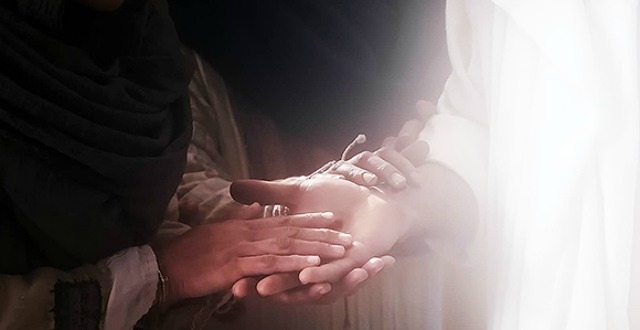Question
Dear Gramps,
If Jesus Christ has paid the price for my sins through an “infinite” atonement, then is it unjust for me to have to also pay a civil penalty for a sin in this life? For example, if I get a speeding ticket, doesn’t Christ’s infinite atonement pay for that sin, rendering unjust any further need for me to pay on the debt? Isn’t that what “infinite” means? Your help to clarify this issue would be most appreciated.
Robert
Answer
Dear Robert,
The apostle Paul contrasted Christ’s atoning sacrifice with the frequent sacrifices offered by earthly priests on Israel’s behalf. “Every priest standeth daily ministering and offering oftentimes the same sacrifices, which can never take away sins: But this man, after he had offered one sacrifice for sins for ever, sat down on the right hand of God.” (Hebrews 10:11-12). Even daily sacrifices proved insufficient for removing sin. Amulek similarly notes that earthly law and ritual at best only covers one injustice at a time. He concludes “therefore there can be nothing which is short of an infinite atonement which will suffice for the sins of the world.” (Alma 34:11).
If then an “infinite atonement” finally “suffice[/s]” for our sins, does that leave us free to sin? “God forbid,” exclaims Paul. “How shall we, that are dead to sin, live any longer therein?” (Romans 6:2). Nor does God’s grace grant us carte blanche to ignore the damage done by our sins. Christ’s Atonement is infinite, but conditional. “And thus he shall bring salvation to all those who shall believe on his name… and bringeth about means unto men that they may have faith unto repentance.” (Alma 34:15). Christ requires that His disciples believe on Him and repent – which includes the desire to set right the wrongs they’ve caused.
President Boyd K. Packer (in The Mediator) uses half the debt model that you lay out to describe the power of the Atonement. “There is a spiritual account, with a balance kept and a settlement due, that no one of us will escape.” He then gives a parable in which a young man (representing us) takes on considerable debt (representing sin) from a creditor. When the debt came due, the young man was found wanting and pled for mercy. The creditor, in turn, demanded justice. Stuck in this impasse where one party must lose, President Packer then introduces a third character to reconcile the two. The young man has a friend (representing Christ, the Mediator) who pays the debt. Thus the creditor sees justice is met, and the young man finds mercy.
So far, President Packer’s parable aligns with your description of the Atonement. But here, there’s a divergence. After the creditor agrees to allow the mediator to take on the debt, the mediator then speaks with the young man.
The mediator turned then to the debtor. “If I pay your debt, will you accept me as your creditor?”
“Oh yes, yes,” cried the debtor. “You save me from prison and show mercy to me.”
“Then,” said the benefactor, “you will pay the debt to me and I will set the terms. It will not be easy, but it will be possible. I will provide a way. You need not go to prison.”
You will note here that there is still a debt, there is still a contract, and there are still conditions. The old debt was owed to the Law, but the new debt is owed to Christ. The old contract required token payments, but this new contract requires a complete change of character. It is not enough cease sin, but a whole new creature must be formed who abhors the sin. This Christian creation embraces the spirit of repentance and recognizes the positive principle it is. Returning to your specific example, a proper Christian, acting as Christ would, would see to it that both God and Caesar were paid.
Gramps







